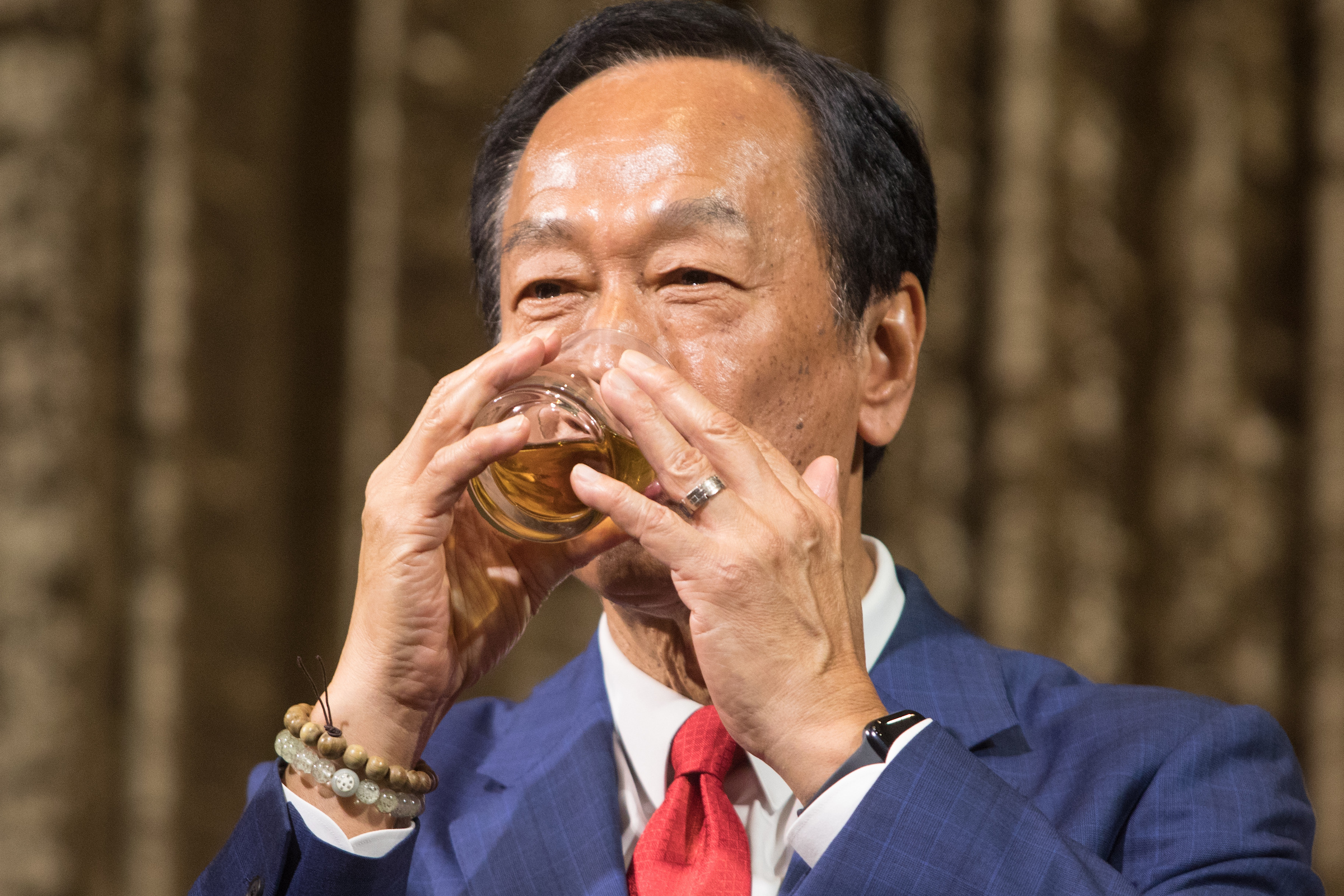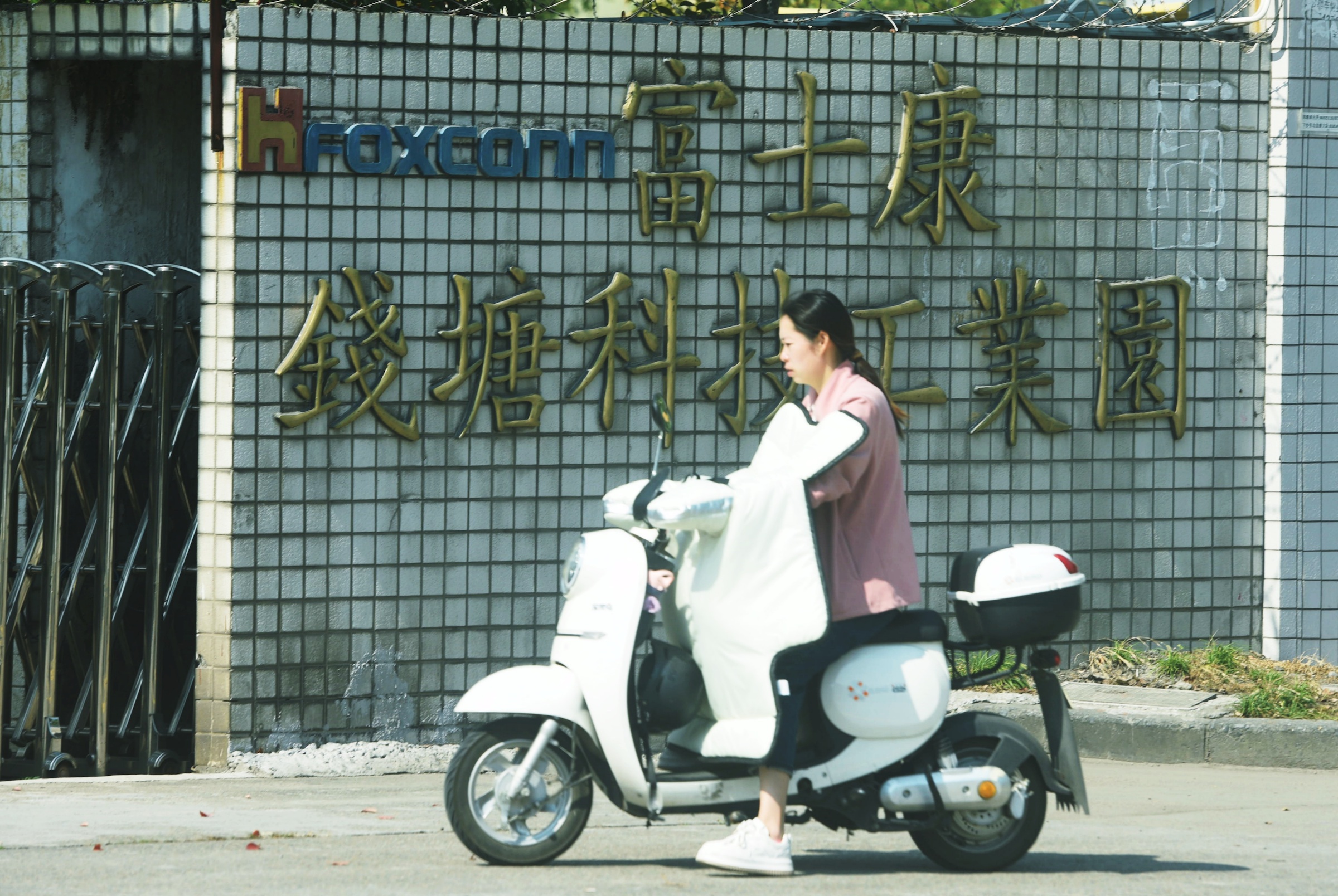Apple contractor Foxconn hit with tax and land-use probe in China
The Taiwanese government came to the defense of Foxconn, the company that makes most of the world’s iPhones, with some saying the move from Beijing constitutes election interference.

Chinese authorities have launched a probe into Taiwan-based Foxconn, the world’s largest manufacturer of iPhones, Chinese state-run nationalist tabloid Global Times reported yesterday. Officials have “conducted tax inspections” at the major Apple supplier’s businesses in the provinces of Guangdong and Jiangsu, and also carried out “on-site investigations into the land use” of its operations in Henan and Hubei provinces.
Apple’s and Foxconn’s shares slipped on Monday. Foxconn’s subsidiaries, such as the Taiwan-listed Foxconn Technology Co. and Shanghai-listed Foxconn Industrial Internet, also took a hit. “Monday’s declines cut more than $5 billion off the companies’ combined market value, FactSet data showed,” according to the Wall Street Journal.
Foxconn released a statement on Sunday, saying, “Legal compliance everywhere we operate around the world is a fundamental principle of Hon Hai Technology Group (Foxconn). We will actively cooperate with the relevant units on the related work and operations.”
The Chinese government has yet to officially comment.
Election interference?
The probe comes just a few months after Foxconn’s billionaire founder, Terry Gou (郭台銘 Guō Táimíng), announced he would run in Taiwan’s presidential elections. (He resigned from the company’s board in September but is still the largest shareholder.)
Gou has positioned himself as an alternative to the ruling Democratic Progressive Party (DPP), pledging to bring peace between Taipei and Beijing. When he announced his candidacy, he said, “If the Chinese Communist Party regime were to say, ‘If you don’t listen to me, I’ll confiscate your assets from Foxconn,’ I would say, ‘Yes, please, do it!’”
Beijing may doubly dislike Gou, 73, because he is expected to siphon votes away from the Kuomintang’s (KTM) candidate, Hou Yu-ih (侯友宜 Hóu Yǒuyí). In contrast with the DPP, the KMT has always favored closer relations with Beijing.
Taiwan Deputy Premier Cheng Wen-tsan (鄭文燦 Zhèng Wéncàn) said Beijing’s aim is to “distort Taiwan’s democracy,” according to AFP. “In a democratic country, choosing leaders and presidents should be done in an environment that is free from threats, incentives, interference, and distortion to freely express one’s will…We do not want Chinese factors to influence the elections.”
He added, “We believe that all Taiwanese businesses’ investments in China are in compliance with the law. They should not be subject to political scrutiny or political interference.”

The news may also shake the confidence of foreign firms in China during an already uncertain time. “My sense is that the core of the leadership really worries about foreign influence as dissent among elites is growing,” Alicia Garcia Herrero, the chief Asia-Pacific economist at Natixis, told Bloomberg.
But Apple CEO Tim Cook was in China just last week, and was told by Chinese commerce minister Wáng Wéntāo 王文涛 that Apple and other multinational companies are welcome to attempt “win-win” collaborations. Garcia-Herrero surmises, “The part of the leadership dealing with the economy and attracting foreign capital is not in the driving seat. So they can only watch and hope to minimize the damage by announcing the opening of certain sectors.”
“Historically, Chinese probes into companies have foreshadowed broader crackdowns,” according to a Financial Times op-ed. “Police recently raided the Shanghai offices of WPP-owned media agency GroupM and questioned staff at consulting group Bain. Beijing may be readying a push against foreign multinationals as a whole.”
In March, Chinese authorities raided the Beijing office of the U.S. due diligence and private investigations firm Mintz, detaining five local employees.






